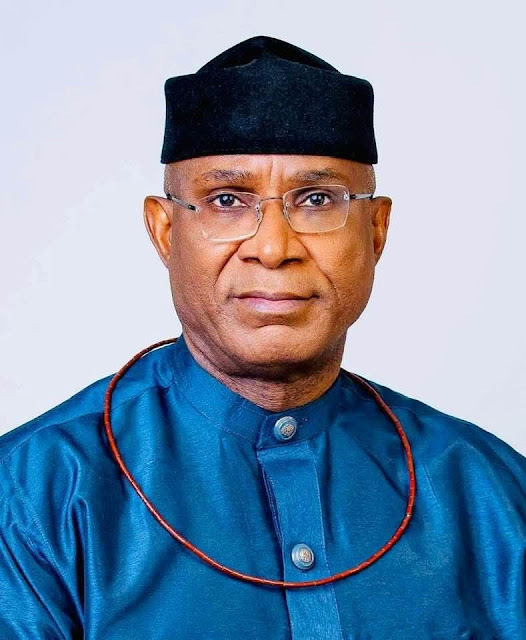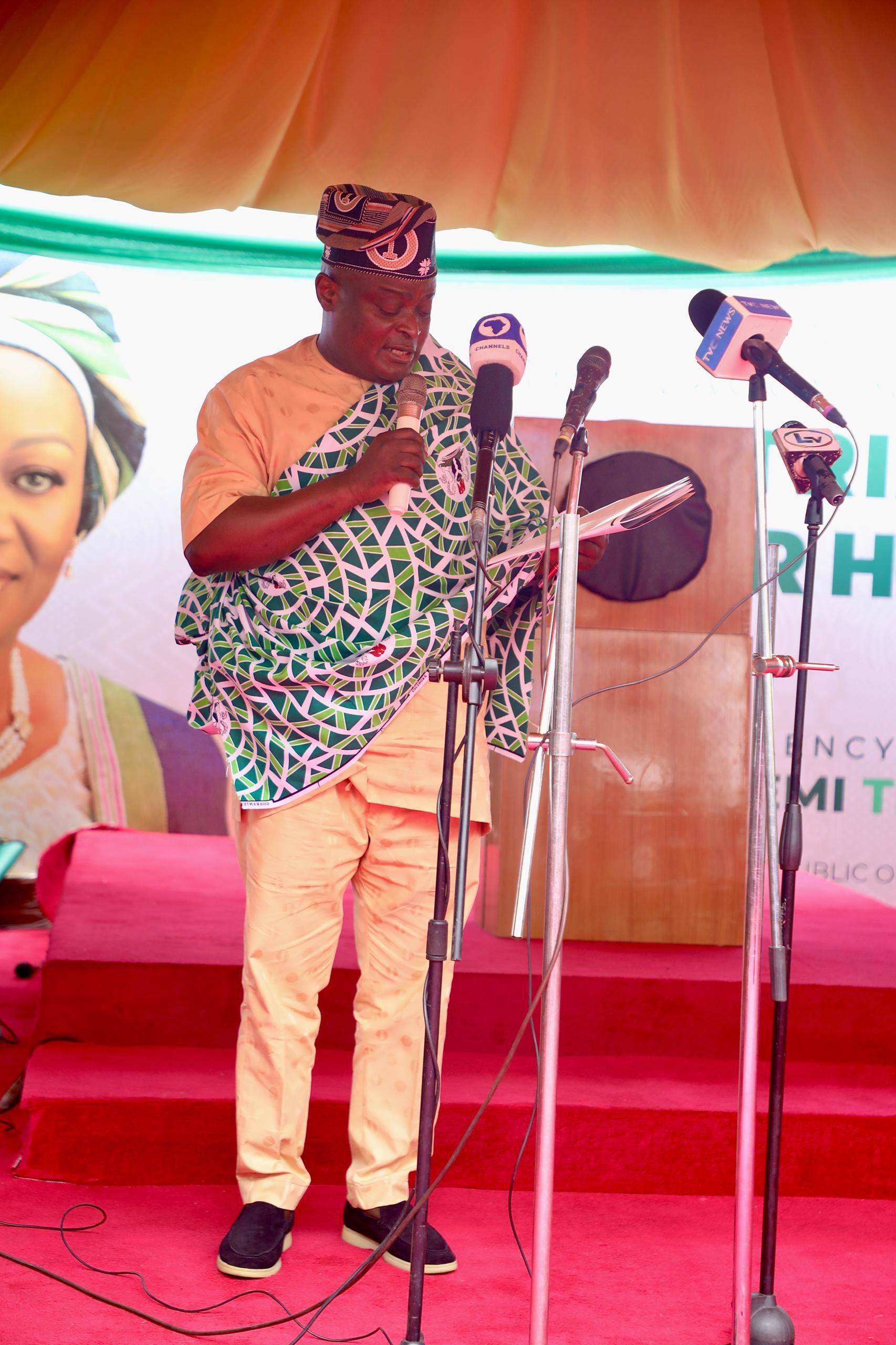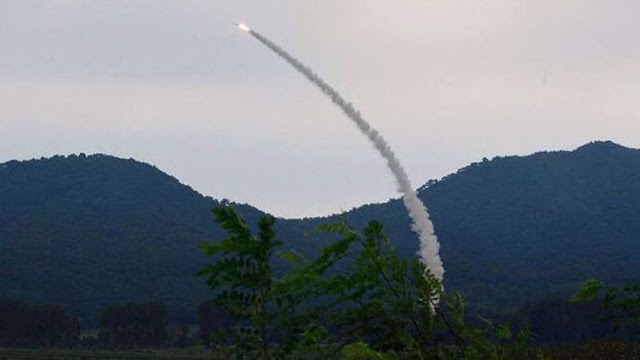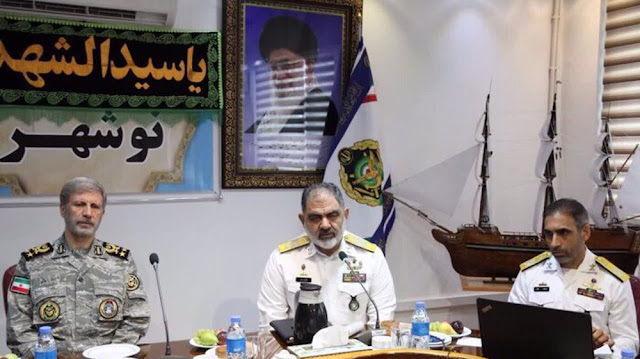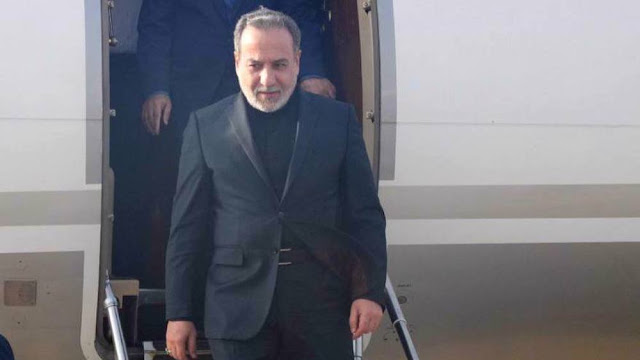In a significant political development in Delta State, Olorogun Morrison Olori, a revered elder statesman and influential chieftain of the All Progressives Congress (APC), has publicly advised former Deputy President of the Nigerian Senate, Senator Ovie Omo-Agege, to abandon any plans to contest the 2027 governorship election against incumbent Governor Sheriff Oborevwori. The advice, delivered during a press address at Olori’s residence in Ughelli on Sunday, August 24, 2025, underscores the delicate balance of political loyalty, party dynamics, and the pursuit of stability in Delta State’s political landscape. Olori’s remarks, rooted in his position as a political patriarch and a seasoned businessman, have sparked widespread discussion about the future of Delta’s governance and the interplay of personal ambition and collective interest.
This article explores the context, implications, and broader significance of Olori’s appeal, delving into the political careers of the key figures involved, the dynamics of Delta State politics, and the potential impact of Omo-Agege’s decision on the state’s future. With a focus on the elder statesman’s call for unity and support for Oborevwori’s second term, the piece also examines the broader themes of political mentorship, party loyalty, and the pursuit of developmental goals in Nigeria’s complex political environment.
The Context of Olori’s Advice
Olorogun Morrison Olori’s intervention comes at a critical juncture in Delta State’s political trajectory. As the 2027 governorship election looms, political actors are already positioning themselves for what promises to be a fiercely contested race. Senator Ovie Omo-Agege, a prominent figure in the APC and a former governorship candidate in 2023, has long been seen as a formidable contender for the state’s top office. His ambition to lead Delta State has been a defining feature of his political career, culminating in his unsuccessful bid in the 2023 election. Despite his defeat, Omo-Agege remains a significant figure in Delta’s political landscape, with a strong base of support and a track record of legislative achievements as the former Deputy President of the Senate.
Governor Sheriff Oborevwori, on the other hand, represents the ruling Peoples Democratic Party (PDP) and has been in office since 2023. His administration has been focused on implementing the MORE Agenda, a policy framework aimed at delivering meaningful development, opportunities, reforms, and enhanced peace and security in Delta State. Oborevwori’s performance has garnered praise from various quarters, including Olori, who highlighted the governor’s “legacy projects” and infrastructural achievements as reasons for supporting his re-election bid in 2027.
Olori’s advice to Omo-Agege was framed as a fatherly counsel, emphasizing his role as a political mentor to both Omo-Agege and Oborevwori. As an octogenarian and one of Nigeria’s foremost businessmen, Olori commands significant respect in Delta State’s political and social circles. His endorsement of Oborevwori and his call for Omo-Agege to step back from the 2027 race reflect a desire to maintain stability and unity within the state’s political space, particularly within the APC, which faces the challenge of balancing individual ambitions with party cohesion.
The Substance of Olori’s Appeal
During his address to journalists, Olori was unequivocal in his stance, urging Omo-Agege to heed the advice of his political ally, Senator Peter Nwaoboshi, a former Delta North lawmaker who has similarly called for Omo-Agege to support Oborevwori’s second term. Olori acknowledged Omo-Agege’s constitutional right to contest for any political position but cautioned that challenging Oborevwori in 2027 would be a “political mistake” and a “waste of time and resources.” He argued that Oborevwori’s performance as governor has been exemplary, positioning him as the likely choice of Deltans for a second term.
“As a political father to all politicians, including Omo-Agege and Governor Oborevwori, Omo-Agege should allow the incumbent to go for a second term,” Olori stated. He emphasized that Oborevwori’s administration has been delivering on the promises that Omo-Agege himself campaigned for in 2023, suggesting that the incumbent governor is fulfilling the developmental aspirations that both politicians share. Olori’s appeal was not merely a call for Omo-Agege to step aside but also a plea for collaboration between the two leaders for the greater good of Delta State.
Olori further highlighted Omo-Agege’s achievements in the Senate, expressing pride in his contributions to national legislation and his representation of Delta State. However, he argued that these accomplishments should not translate into a governorship bid in 2027, given Oborevwori’s strong performance. “We are proud of Omo-Agege for his achievements in the Senate. But we must agree that Governor Oborevwori is doing well for Deltans. We are all proud of the legacy projects he is doing across the state,” Olori remarked.
In a particularly pointed statement, Olori suggested that Omo-Agege’s potential candidacy would not only be futile but could also be seen as an affront to President Bola Tinubu, the leader of the APC, who Olori claimed is “fully in support” of Oborevwori’s re-election. This reference to Tinubu introduces a national dimension to the issue, highlighting the interplay between state and federal politics in Nigeria’s complex political system. By invoking the president’s name, Olori sought to underscore the importance of party loyalty and alignment with the APC’s broader objectives.
The Political Dynamics in Delta State
To fully appreciate Olori’s advice, it is essential to understand the political dynamics in Delta State. The state is one of Nigeria’s most politically vibrant regions, with a diverse population comprising ethnic groups such as the Urhobo, Itsekiri, Ijaw, Isoko, and Anioma, among others. These ethnic divisions often shape political alignments, with candidates and parties seeking to build coalitions across ethnic lines to secure electoral victories.
Omo-Agege, an Urhobo from Delta Central, has historically drawn significant support from his ethnic base, which constitutes a substantial portion of the state’s population. His 2023 governorship bid was backed by a coalition of APC supporters, including Olori, who played a key role in mobilizing resources and support for the campaign. However, Oborevwori, an Urhobo from the PDP, emerged victorious, leveraging his party’s strong organizational structure and appeal across ethnic groups.
The 2027 election is expected to be a high-stakes contest, with the APC seeking to challenge the PDP’s dominance in Delta State. Omo-Agege’s potential candidacy would position him as the APC’s frontrunner, given his prominence and political experience. However, Olori’s advice suggests that such a move could deepen divisions within the APC and alienate key stakeholders who support Oborevwori’s re-election.
Moreover, the reference to Senator Peter Nwaoboshi’s similar advice indicates that Omo-Agege may face pressure from within his own political circle to reconsider his ambitions. Nwaoboshi, a seasoned politician and former ally of Omo-Agege, carries significant influence in Delta North, the Anioma region. His endorsement of Oborevwori’s second term suggests a strategic alignment with the incumbent, possibly driven by pragmatic considerations about electoral prospects and the need for political stability.
Implications of Olori’s Advice
Olori’s intervention has far-reaching implications for Delta State’s political landscape and the APC’s strategy for 2027. Below are some of the key implications:
Party Unity and Cohesion: Olori’s appeal underscores the importance of unity within the APC, which has faced challenges in maintaining cohesion in Delta State. By urging Omo-Agege to support Oborevwori, Olori is advocating for a collaborative approach that prioritizes the party’s long-term interests over individual ambitions. A united APC could strengthen its position in future elections, even if it means conceding the 2027 governorship race to the PDP.
Omo-Agege’s Political Future: For Omo-Agege, the decision to heed or ignore Olori’s advice will shape his political trajectory. Stepping back from the 2027 race could position him as a statesman willing to prioritize the state’s stability, potentially earning him goodwill for future opportunities, such as a return to the Senate or a federal appointment. Conversely, proceeding with his candidacy could solidify his base but risk a divisive and potentially unsuccessful campaign.
Oborevwori’s Re-election Prospects: Olori’s endorsement of Oborevwori strengthens the governor’s position as a frontrunner for 2027. By framing Oborevwori’s administration as successful and aligned with the aspirations of Deltans, Olori is helping to consolidate support for the governor across party lines. This could make it more difficult for the APC to mount a competitive challenge.
Ethnic and Regional Dynamics: The call for Omo-Agege to step aside also reflects the delicate balance of ethnic and regional interests in Delta State. Both Omo-Agege and Oborevwori are Urhobo, and a contest between them could deepen divisions within the Urhobo community, potentially benefiting candidates from other ethnic groups or regions. Olori’s advice may be an attempt to preserve Urhobo unity while supporting a candidate seen as delivering results.
National Political Implications: The reference to President Tinubu’s alleged support for Oborevwori introduces a national dimension to the issue. If true, this suggests that the APC’s national leadership may prioritize strategic alliances with performing governors, even from rival parties, over intra-party competition in certain states. This could influence the APC’s approach to other states where similar dynamics exist.
Challenges and Opportunities
Olori’s advice presents both challenges and opportunities for Delta State’s political actors. For Omo-Agege, the challenge lies in balancing his personal ambition with the broader interests of the APC and the state. A decision to contest in 2027 could lead to a fractious campaign, potentially weakening the APC’s position and alienating key allies like Olori and Nwaoboshi. However, it also offers an opportunity for Omo-Agege to reassert his leadership and mobilize his base, particularly if he believes Oborevwori’s performance is not as strong as claimed.
For Oborevwori, the endorsement from a prominent APC chieftain like Olori is a significant boost, but it also raises expectations for his administration to deliver on its promises. The governor must continue to demonstrate tangible progress on his MORE Agenda to maintain the support of influential figures and the broader electorate. Failure to do so could open the door for Omo-Agege or other challengers to gain traction.
For the APC, the challenge is to manage internal divisions and present a united front, whether by supporting Omo-Agege’s candidacy or aligning with Olori’s call for cooperation with Oborevwori. The party has an opportunity to redefine its strategy in Delta State, potentially focusing on grassroots mobilization and policy advocacy rather than a direct challenge for the governorship.
Broader Significance for Nigerian Politics
Olori’s advice reflects broader themes in Nigerian politics, where personal ambition, party loyalty, and the pursuit of stability often intersect. The role of elder statesmen like Olori in mediating political disputes is a longstanding tradition in Nigeria, where respected figures often serve as moral and political compasses. However, such interventions can also be seen as attempts to maintain the status quo or protect vested interests, raising questions about the balance between mentorship and influence.
The interplay between state and national politics, as highlighted by Olori’s reference to President Tinubu, underscores the interconnectedness of Nigeria’s political system. Decisions made at the state level can have ripple effects on national politics, particularly within a ruling party like the APC, which must balance its ambitions across multiple states.
Moreover, the emphasis on Oborevwori’s performance highlights the growing importance of governance and accountability in Nigerian politics. Voters are increasingly demanding tangible results from elected officials, and endorsements like Olori’s are contingent on the perception of effective leadership. This trend could reshape electoral dynamics in Delta State and beyond, as performance becomes a key factor in political calculations.
Conclusion
Olorogun Morrison Olori’s appeal to Senator Ovie Omo-Agege to forego his 2027 governorship ambition in Delta State is a significant moment in the state’s political journey. Rooted in a call for unity, stability, and support for Governor Sheriff Oborevwori’s re-election, Olori’s advice reflects the complex interplay of personal ambition, party loyalty, and the pursuit of development in Delta State. As a respected elder statesman and APC chieftain, Olori’s intervention carries weight, but its ultimate impact will depend on Omo-Agege’s response and the broader political dynamics in the state.
The events unfolding in Delta State offer a microcosm of the challenges and opportunities in Nigerian politics, where leaders must navigate ethnic, regional, and party considerations while addressing the needs of their constituents. Whether Omo-Agege heeds Olori’s advice or charts his own path, the 2027 election will be a defining moment for Delta State, shaping its political and developmental trajectory for years to come.


